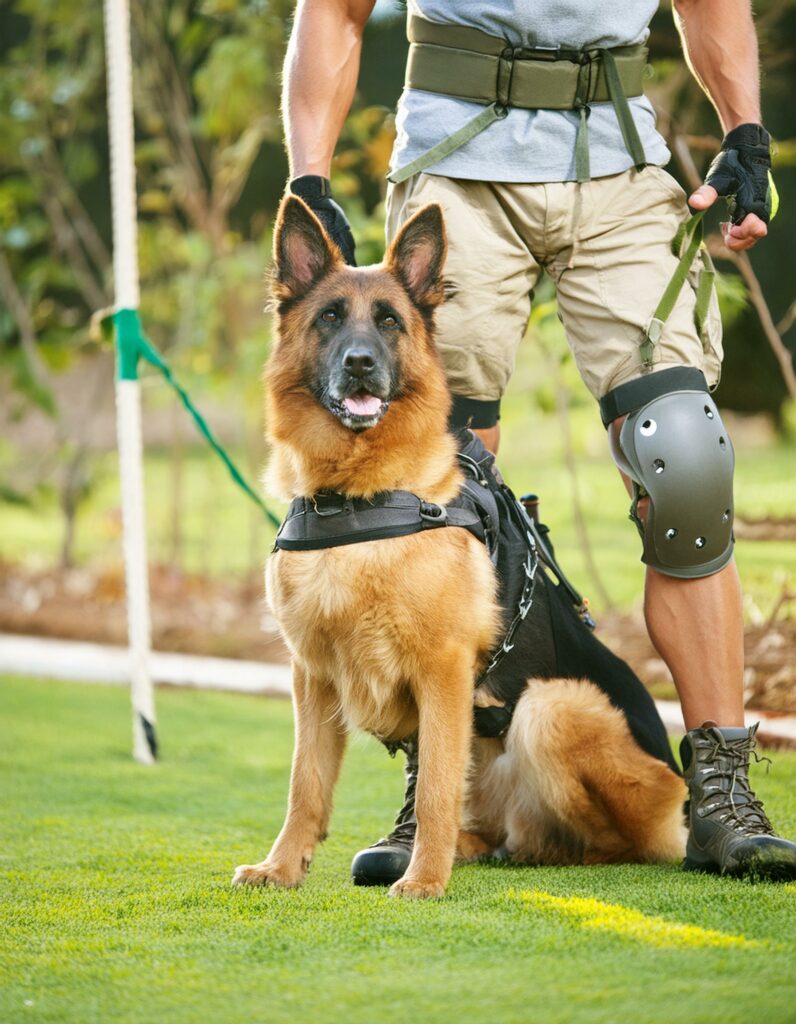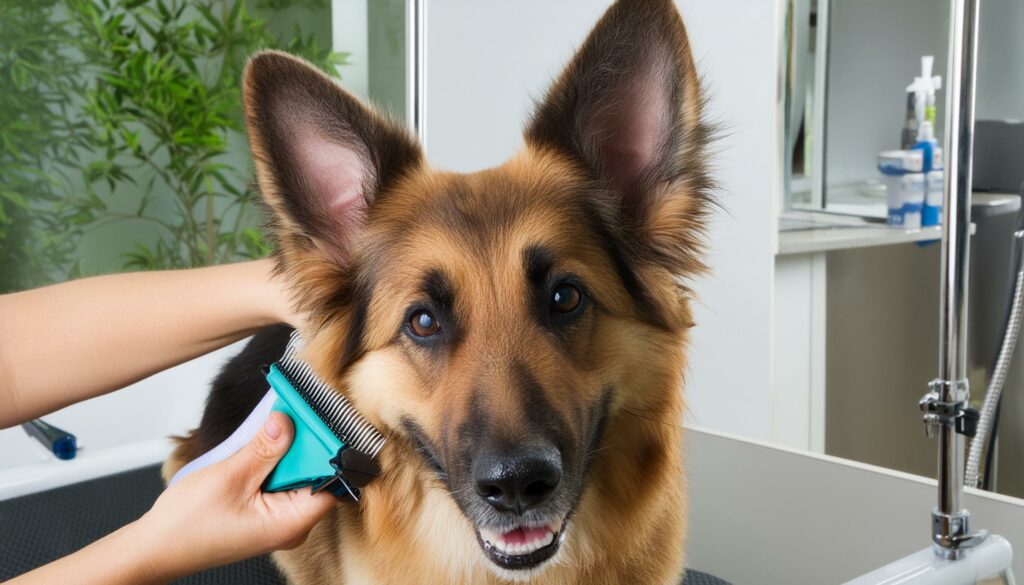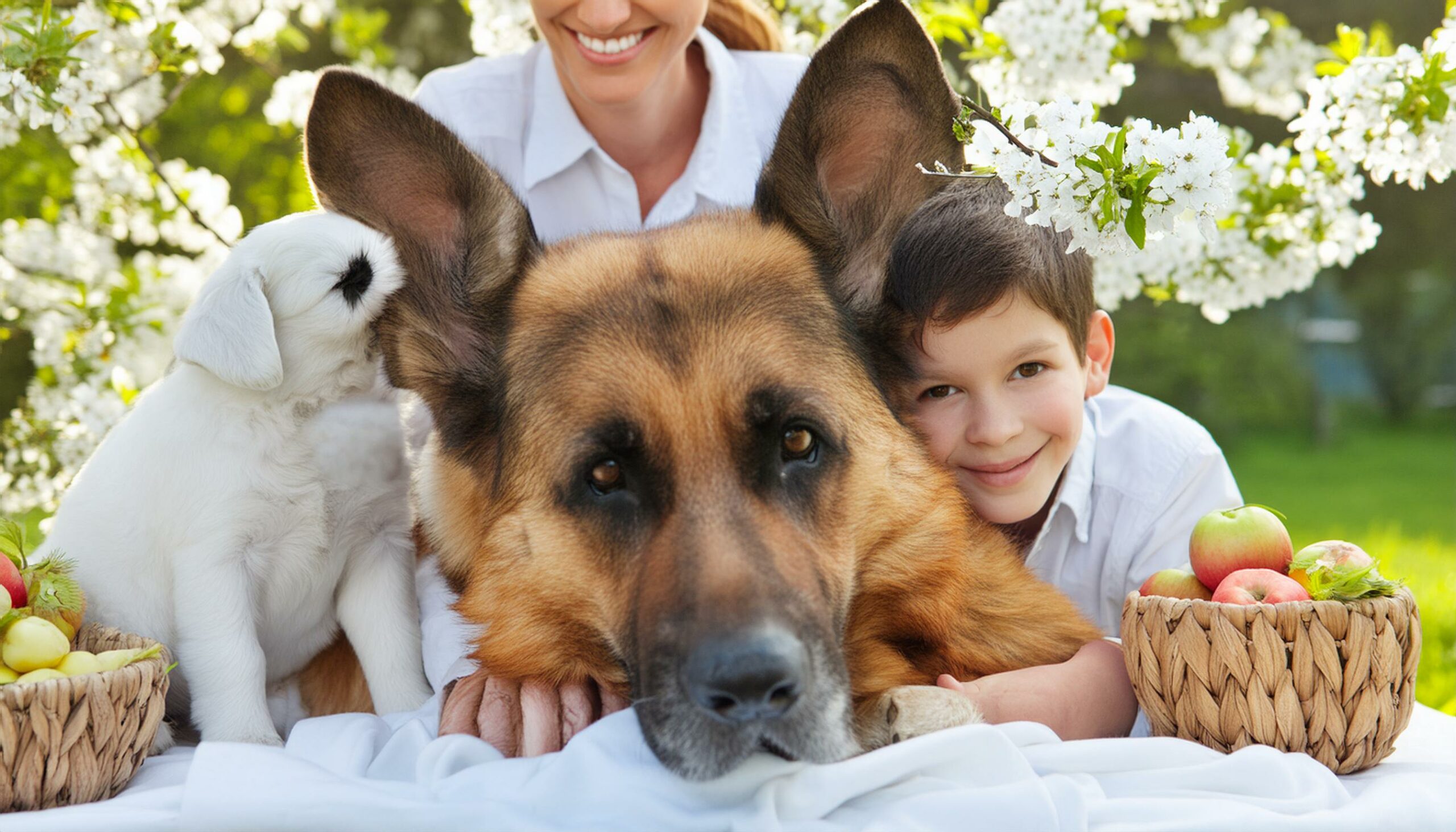When it comes to choosing a family dog, the German Shepherd is often a breed that comes to mind. Known for their intelligence, loyalty, and versatility, German Shepherds are not just popular as police and service dogs but are also beloved as family companions. This article dives deep into the attributes that might make German Shepherds the perfect addition to your family, addressing concerns about temperament, training, and health.
Understanding the German Shepherd
The German Shepherd breed was originally developed in Germany for herding and guarding sheep. Over time, their roles have expanded due to their high intelligence, strong work ethic, and adaptable nature. Today, they are one of the most popular breeds worldwide, valued both in professional work environments and homes.
Temperament: A Key Factor
Temperament is one of the most crucial factors when considering a German Shepherd as a family dog. Typically, a well-bred German Shepherd is calm, confident, and courageous. They are not overly aggressive but are known for their strong protective instinct. This protective nature makes them excellent guardians of their families, especially children.
Interaction with Children

German Shepherds can be wonderful with children, particularly if they are brought up together. They are known to be patient and protective, often forming strong bonds with younger members of the family. However, due to their size and strength, interactions should always be supervised, especially with younger children. Training and socialization play crucial roles in ensuring that the dog behaves appropriately around kids.
Dealing with Other Pets
If you have other pets at home, the German Shepherd’s behavior towards them can vary. Generally, if raised with other animals from a young age, they can coexist peacefully. Nevertheless, their strong prey drive can sometimes lead to chasing smaller animals. Early, consistent socialization is essential to help mitigate these instincts and promote harmonious relationships with other pets.
Training Requirements
Training is a non-negotiable aspect of owning a German Shepherd. These dogs thrive on mental stimulation and require regular training sessions. Their intelligence and eagerness to please make them highly trainable.

Obedience Training
Effective training begins with basic obedience. German Shepherds excel in structured training environments where commands like sit, stay, come, and heel become part of their daily routine. This not only helps in managing their behavior but also strengthens the bond between the dog and its owner.
Socialization
Socialization is equally important and should begin early in a German Shepherd’s life. Exposing them to a variety of people, environments, sounds, and experiences helps prevent the development of fearful or aggressive behaviors. Well-socialized German Shepherds are more likely to handle new situations with confidence and ease.
Exercise Needs
A German Shepherd’s exercise needs are considerable. They require regular physical activity to stay healthy and happy. Lack of exercise can lead to boredom and destructive behaviors. Daily activities should include walks, runs, hikes, playtime, and other physical exercises. Additionally, mental stimulation through puzzle games, new tricks, and tasks can help keep their mind sharp.
Health Considerations
While German Shepherds are generally healthy, they are prone to certain genetic conditions such as hip dysplasia, elbow dysplasia, and degenerative myelopathy. Regular check-ups with a veterinarian can help catch and manage these conditions early. Maintaining a healthy weight is also crucial to reduce stress on their joints.
Diet and Nutrition
A balanced diet is critical for the German Shepherd’s overall health. High-quality dog food that meets the nutritional levels established by the AAFCO is recommended. Portion control is important to prevent obesity, especially since this breed can be prone to joint issues.

Grooming Needs
German Shepherds have a double coat that requires regular grooming. They shed year-round and even more during the spring and fall. Regular brushing helps manage shedding and keeps the coat healthy. Additionally, routine care like nail trimming, ear cleaning, and dental care are essential for overall wellness.
Lifespan and Aging
Typically, German Shepherds live between 9 to 13 years. Understanding their needs as they age is crucial to ensure they remain comfortable and healthy in their senior years. Adjustments in diet, exercise, and regular veterinary care are key.
Conclusion
Choosing a German Shepherd as a family dog is a significant commitment that requires consideration of their temperament, health, exercise, and training needs. With the right environment, training, and care, a German Shepherd can indeed be a wonderful family companion, known for its loyalty, protection, and love.
FAQs
Are German Shepherds suitable for small living spaces?
German Shepherds are active dogs and usually do better in homes with more space and a yard. However, with sufficient daily exercise, they can adapt to smaller spaces.
Can German Shepherds handle cold weather?
Yes, their double coat provides them with good insulation against cold weather, but they should not be left outside in extreme conditions without proper shelter.
Are German Shepherds easy to train?
Yes, their intelligence and eagerness to learn make them one of the easier breeds to train.
How often do German Shepherds need to visit the vet?
Regular check-ups are recommended at least once a year, and more frequently as they age or if health issues arise.
Do German Shepherds get along with cats?
They can get along with cats, especially if raised with them, but their natural prey drive means careful introduction and early socialization are essential.
